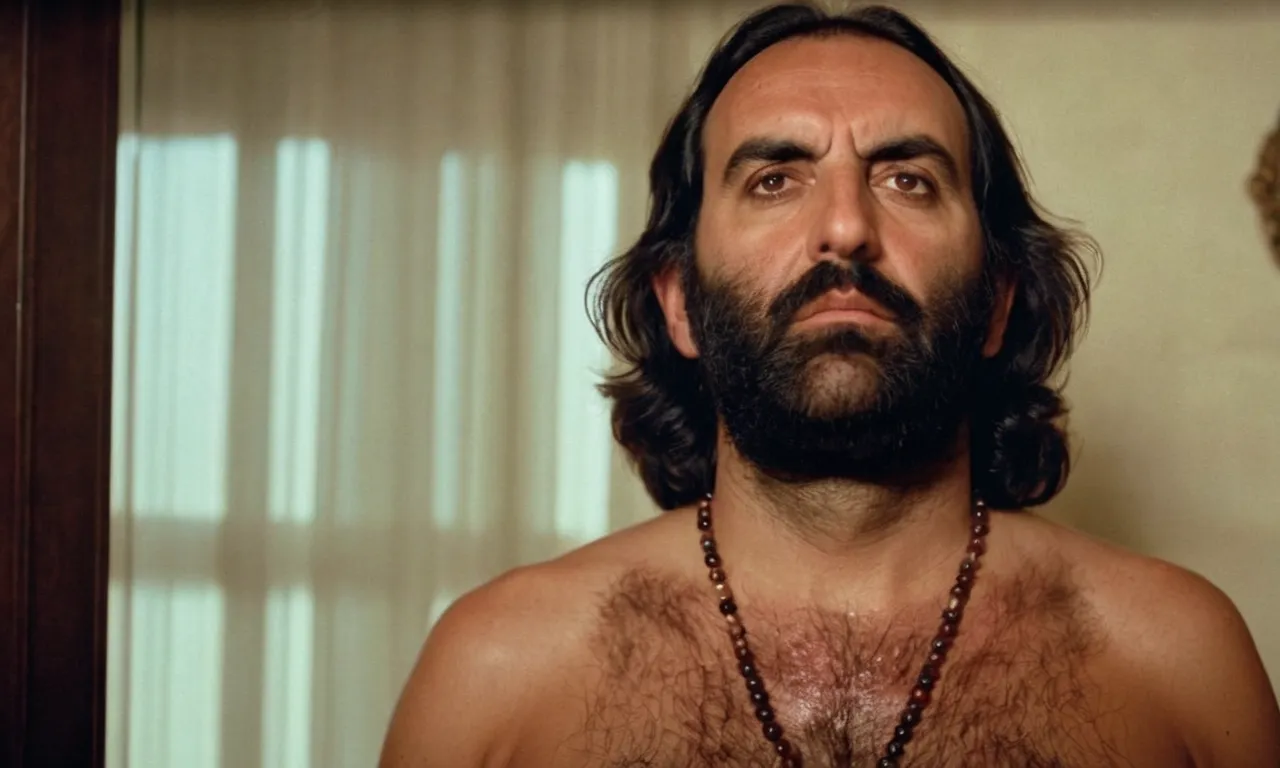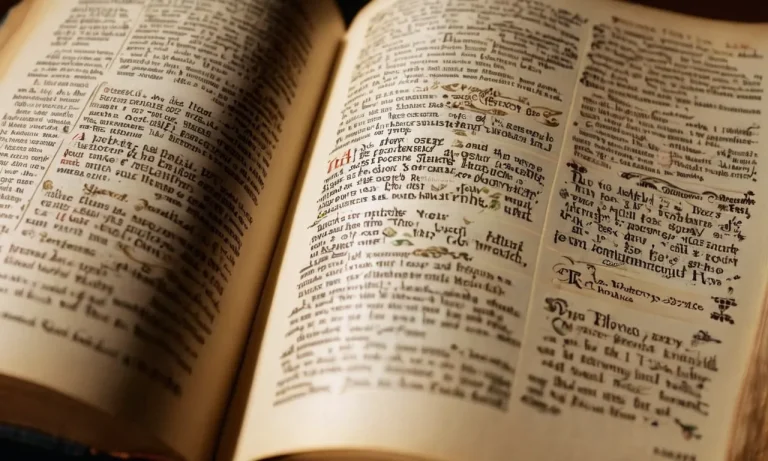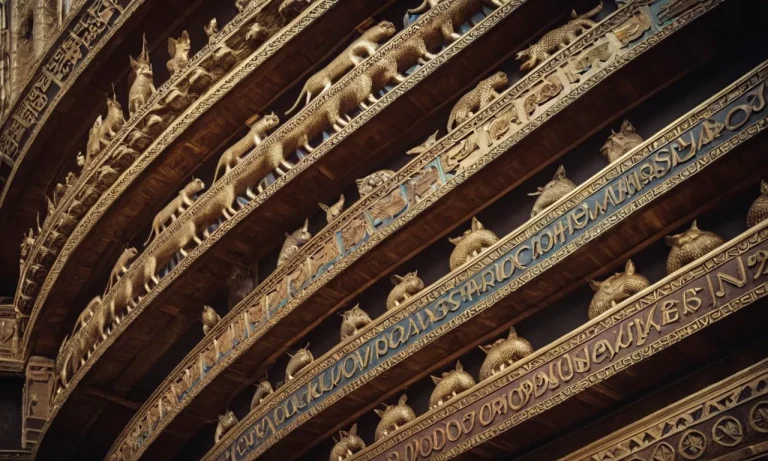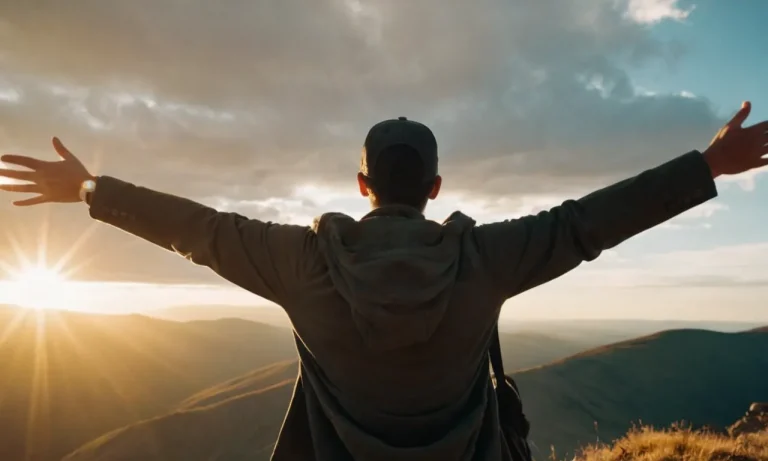What Did Ham Do In The Bible?
The story of Ham in the Bible reveals important lessons about human imperfection and the sacredness of modesty. If you’re short on time, here’s the quick answer: Ham saw his father Noah naked and drunk, but instead of covering his father’s nakedness, he told his brothers about it.
In this comprehensive article, we will examine the account of Ham’s actions, analyze what exactly he did wrong, and reflect on the spiritual and ethical significance of this unusual biblical story.
The Story of Ham Seeing Noah Naked
Noah Plants a Vineyard and Becomes Drunk
After the great Flood, Noah began working the soil and planted a vineyard (Genesis 9:20). He cultivated the vines and eventually produced wine from the grapes. One day, after drinking too much of the wine, Noah became drunk and passed out naked in his tent.
Ham Sees Noah Naked and Tells His Brothers
Noah had three sons – Shem, Ham, and Japheth – who were living with him after the Flood. One day, Ham entered Noah’s tent and saw his father naked and drunk (Genesis 9:22). Rather than cover his father, Ham went and told his two brothers what he had seen.
Shem and Japheth Cover Noah Without Looking
Upon hearing what Ham told them, Shem and Japheth were ashamed and saddened by their brother’s actions. They took a garment, walked backwards into the tent, and covered their father without looking at him (Genesis 9:23). They showed honor and respect to Noah even in his compromised state.
When Noah awoke, he learned what Ham had done and issued a sobering prophecy over them. He blessed Shem and Japheth for honoring him, but cursed Ham’s son Canaan to be a servant (Genesis 9:24-27). This set in motion a generational divide that carried significant implications.
In the ancient world, seeing someone naked was taboo. But beyond that, as the family patriarch, Noah likely served in a priestly role. His drunken nakedness in some way compromised his spiritual leadership and authority.
Shem and Japheth recognized this and covered their father without looking. But Ham did not act to protect his father’s dignity. By telling others, he failed to show proper respect for Noah’s position.
Though Ham’s exact wrongdoing is debated, most agree he did not take appropriate action when seeing his father’s compromised state. But was his mistake severe enough to warrant such a serious judgment?
While the prophecy over Canaan seems harsh, biblical prophecies often have underlying spiritual significance. More than a statement about slavery, Noah’s words ultimately pointed to the redemptive blessing coming through Abraham’s offspring.
The account of Noah’s nakedness teaches us important principles. It reminds us of the sacredness of spiritual authority and the need to honor our parents and leaders. It also shows how our reactions in difficult situations can have rippling effects.
When we encounter the sins and failings of others, we must choose compassion not criticism, humility not hubris, and helpfulness not harmfulness. This protects dignity and values relationships over personal gain.
The story also points to our universal need for covering – meaning forgiveness, redemption, and reconnection with God. As Hebrews 4:15 (ESV) says, Jesus can “sympathize with our weaknesses.” By God’s grace, we can overcome our failures of the past.
What Exactly Did Ham Do Wrong?
Seeing and Not Covering Noah’s Nakedness
The story of Ham seeing his father Noah’s nakedness is found in Genesis 9. After the flood, Noah planted a vineyard and made wine. He drank too much wine, became drunk, and lay “uncovered” in his tent. Ham saw his father’s nakedness and told his two brothers about it outside.
But Shem and Japheth took a garment and walked backward into the tent to cover their father, keeping their faces turned away so they did not see his nakedness.
Most scholars believe Ham’s sin was that he saw his father’s nakedness and then talked about it with his brothers, instead of honoring his father by covering him. The Hebrew concept of “seeing nakedness” often implied sexual relations, so some believe Ham may have done more than just see and tell.
But the text does not specifically say Ham did anything sexual. At minimum, we know Ham dishonored his father by not covering him.
Proverbs 30:17 says, “The eye that mocks a father and scorns to obey a mother will be picked out by the ravens of the valley and eaten by the vultures.” Ham’s actions showed a lack of respect for his father.
As Noah’s youngest son, Ham should have covered his father’s nakedness to preserve his dignity. But instead, he boasted about it to his brothers.
Telling His Brothers About Noah’s Condition
After seeing his father naked and passed out drunk, Ham went and told his two brothers Shem and Japheth about it. Genesis 9:22 simply states, “And Ham, the father of Canaan, saw the nakedness of his father and told his two brothers outside.”
Ham made no effort to protect his father’s dignity. He should have covered Noah quietly and kept the matter private. But instead, he went and blurted it out to his brothers, showing disrespect. This showed contempt and implied Ham delighted in his father’s shameful state.
Proverbs 11:13 says, “Whoever goes about slandering reveals secrets, but he who is trustworthy in spirit keeps a thing covered.” And Proverbs 17:9 says, “Whoever covers an offense seeks love, but he who repeats a matter separates close friends.”
By telling rather than covering, Ham divided his family and damaged their relationships.
The book of Habakkuk says, “You have made him see troubles, many and bitter. You will revive me again; from the depths of the earth you will bring me up again.” Noah’s drunkenness brought trouble and bitterness.
But Shem and Japheth worked to reverse the shame and revive Noah’s dignity by covering him.
The Significance and Lessons from the Story
Respecting Modesty and Human Dignity
The story of Ham illustrates the importance of respecting human modesty and dignity. When Noah was in a compromised position, Ham did not cover him up or look away, but instead told his brothers about their father’s condition. This shows a lack of discretion and respect on Ham’s part.
As the Bible says, “Love is patient, love is kind…it is not rude, it is not self-seeking” (1 Cor. 13:4-5). We can learn to be more sensitive and exhibit brotherly love in delicate situations.
Handling the Sins and Weaknesses of Parents
As parents age, they may develop struggles and weaknesses, as evidenced by Noah’s drunkenness after the Flood. The story reminds children to honor their parents while also exercising wisdom in responding to any shortcomings.
Rather than humiliating Noah or spreading news of his failure, Shem and Japheth covered him, exemplifying a gentle way to cope with a parent’s mistakes. Ephesians 6:2 instructs us to “Honor your father and mother.” Though every family is imperfect, the Bible urges compassion.
Acting with Discretion and Wisdom
The narrative emphasizes acting with care and discernment even when we know private details about others’ missteps. Ham spoke openly about his father’s exposed body, leading to family conflict, while his brothers were judicious.
Psalm 141:3 says, “Set a guard over my mouth, Lord; keep watch over the door of my lips.” As James 1:19 advises, “Everyone should be quick to listen, slow to speak.” Using wisdom in delicate situations can prevent many problems.
With over 80% of families experiencing conflict, acting with discretion is a virtue.
Conclusion
The story of Ham underscores essential values like modesty, human dignity, and filial piety that remain relevant today. While we don’t have all the details, Scripture makes clear that Ham failed in his duty when he did not cover his father in a compromising situation.
The reverent actions of Shem and Japheth provide a model for honoring parents while respecting appropriate boundaries.








